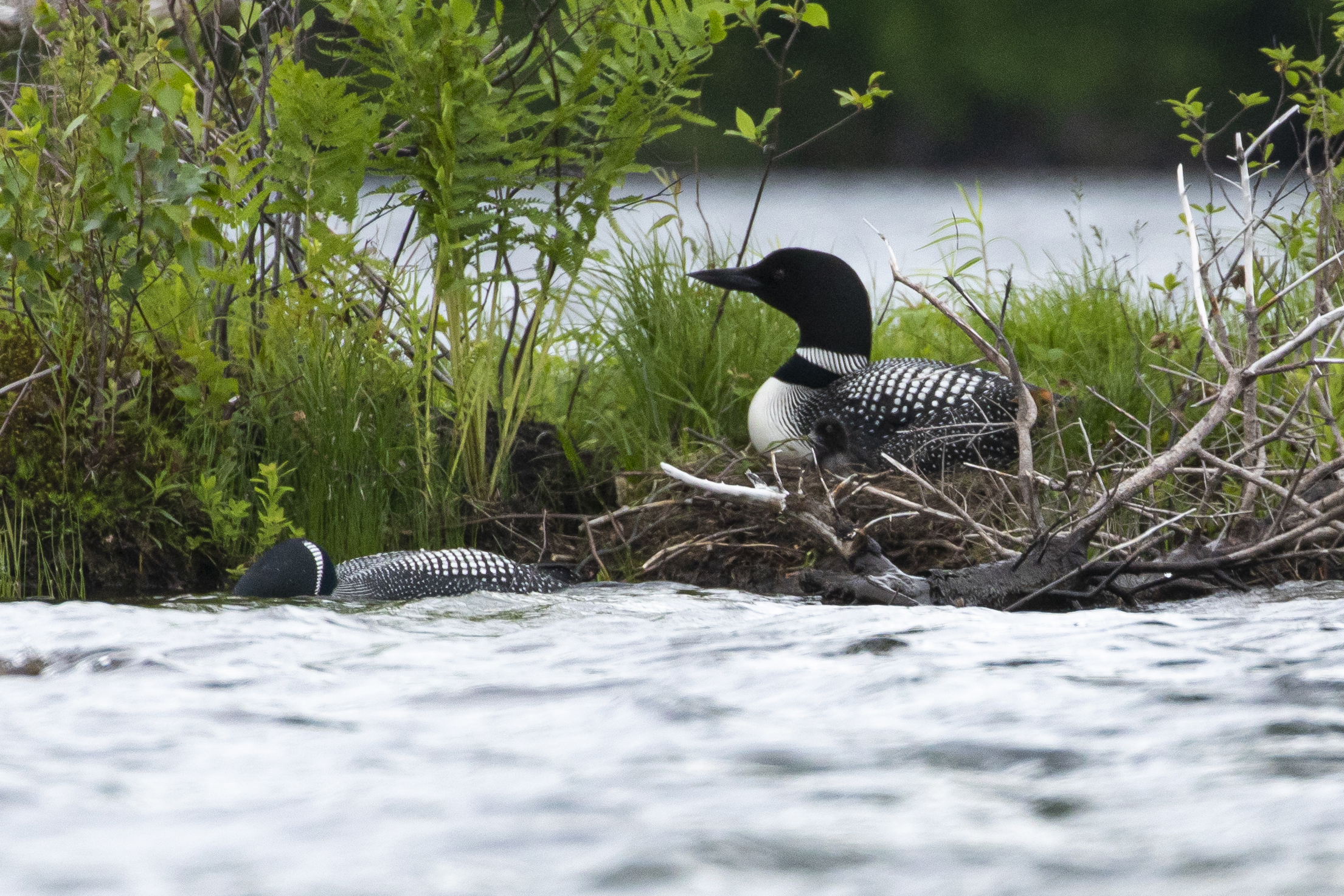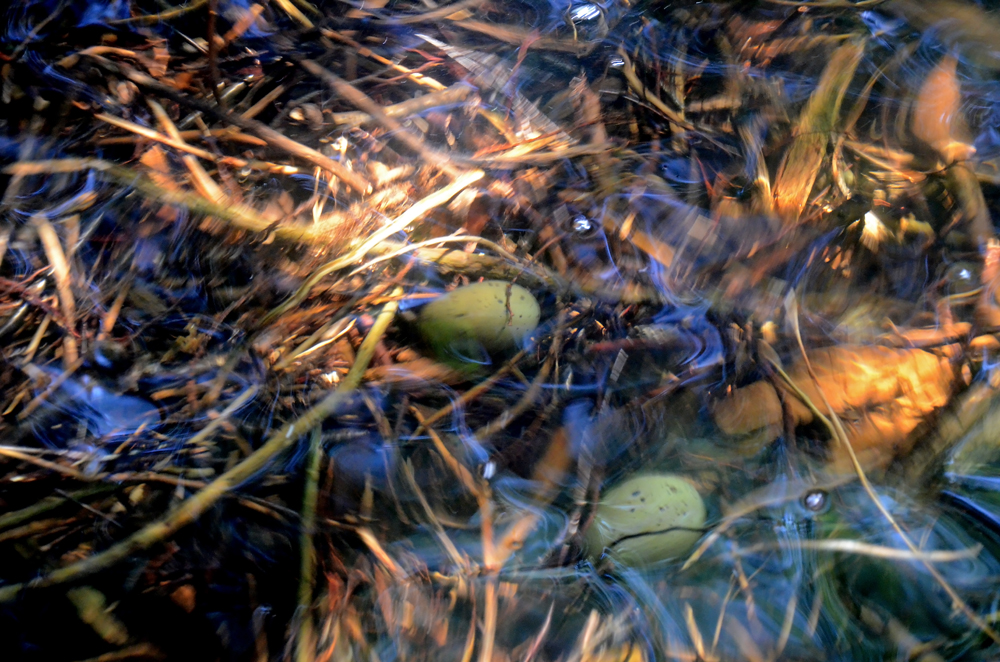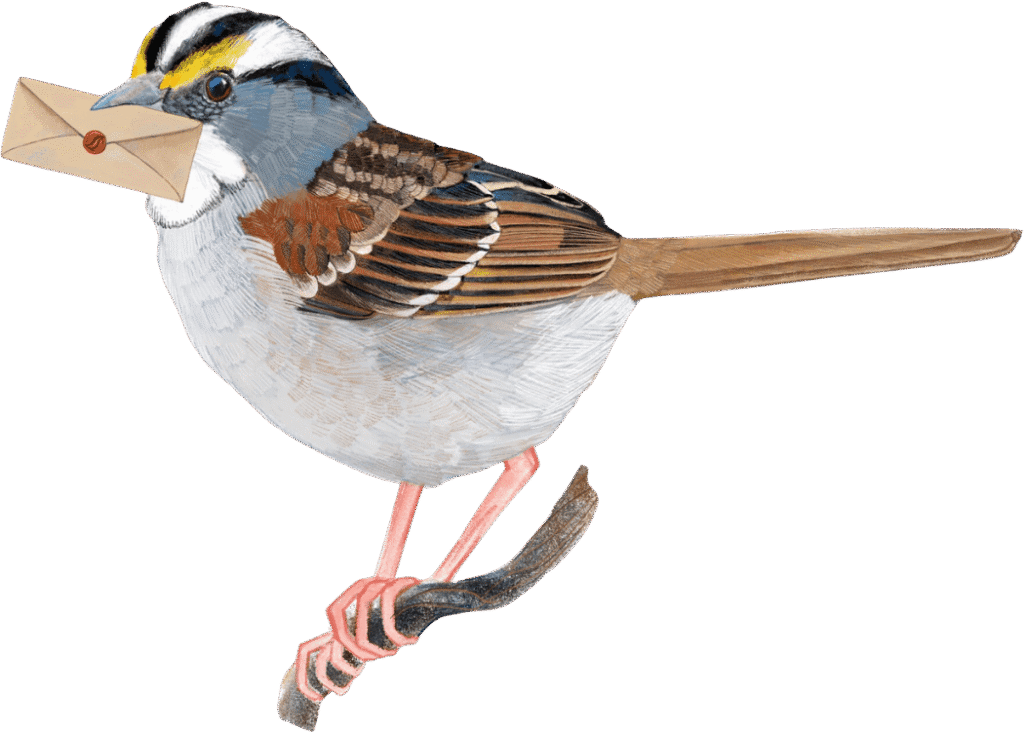Field Update: New nests, flooded nests, and healthy competition
It’s July, and loon nesting season is in full swing. July is also when VCE holds its annual LoonWatch Day—a day when volunteers across the state simultaneously survey more than 160 lakes and ponds for loons (adults, subadults, and chicks). Last year, LoonWatch volunteers counted a record 354 adult loons! This year, LoonWatch Day takes place on July 20. If you’d like to survey an unassigned lake, please contact me at ehanson@vtecostudies.org or 802-586-8065. Click here to find the current list of lakes in need of volunteers. I hope to see you on the water! In the meantime, here’s a brief update from the field. – Eric Hanson
New Nests
The first chicks of the season have hatched, and new reports of tiny Vermont loonlets are coming in almost daily. New nest sites have also been reported, with one of the most exciting new sites located on Hardwood Pond, where two chicks hatched out in late June. This is the first nest on Hardwood Pond since 2002, when the then-resident pair “dissolved” a year later. The pond has had intermittent activity since, but only last year did a loon twosome stick around, as if checking out the potential for a future nest. The pond is very shallow and small, and it may be that these marginal lakes cannot sustain a pair for decades on end. A similar waterbody is Branch Pond, located in the southern Green Mountains, where a loon nest was documented once back in 1979 or 1980—happily, a new nest was discovered this June by VCE volunteer Charles Davis. We’ve also documented new nesting pairs on Lowell Lake and Waterbury Reservoir.
Flooded Nests
A large rainfall event on June 20 dumped two to five inches of rain in the span of a few hours, an amount sure to cause flooding of some roadways—and some loon nests (at least eight nests were flooded, and likely more. I am actually surprised at how many nests stayed dry). Rising waters flooded the new Waterbury Reservoir nest, effectively cancelling that loon pair’s chick-rearing season. Because water levels often fluctuate one to three feet on the reservoir, I’ll be building and placing a raft here this summer with help from the Friends of Waterbury Reservoir and Vermont Forest and Parks ranger Chad Ummel. Hopefully the loon pair will return in 2020 and call this new human-made raft home.
Healthy Competition
And lastly, with the Vermont loon population doing so well, competition between pairs and “floaters,” or extraterritorial birds, is alive and well. Despite how distressing it can be to watch loon chases, hear crazy calls, and witness nest failures or lost chicks, this competition is normal and healthy. I tell people to try to step back from the emotional side, and observe nature at work. It’s actually OK that productivity slows down as the population begins to stabilize after decades of tremendous growth.



